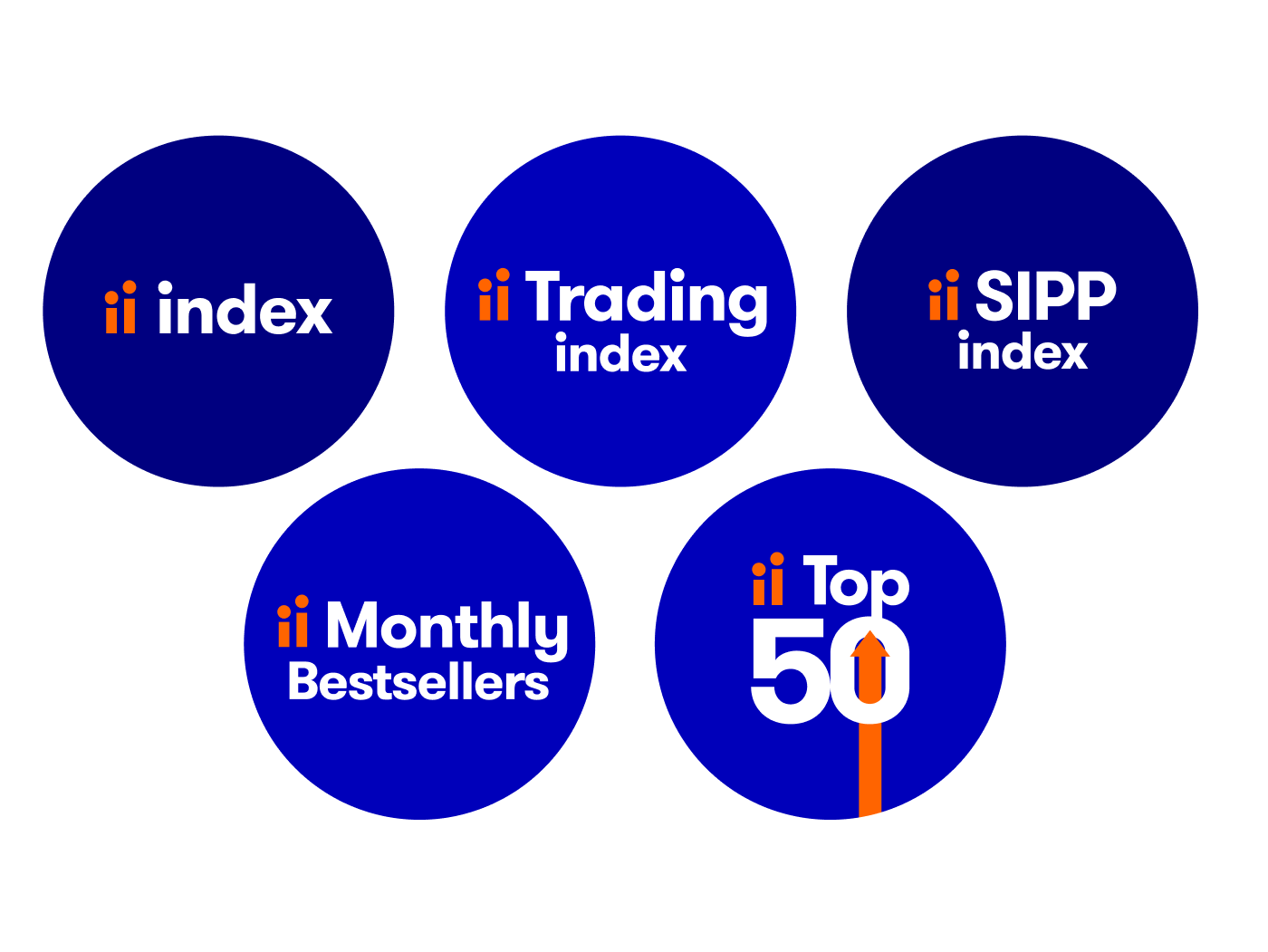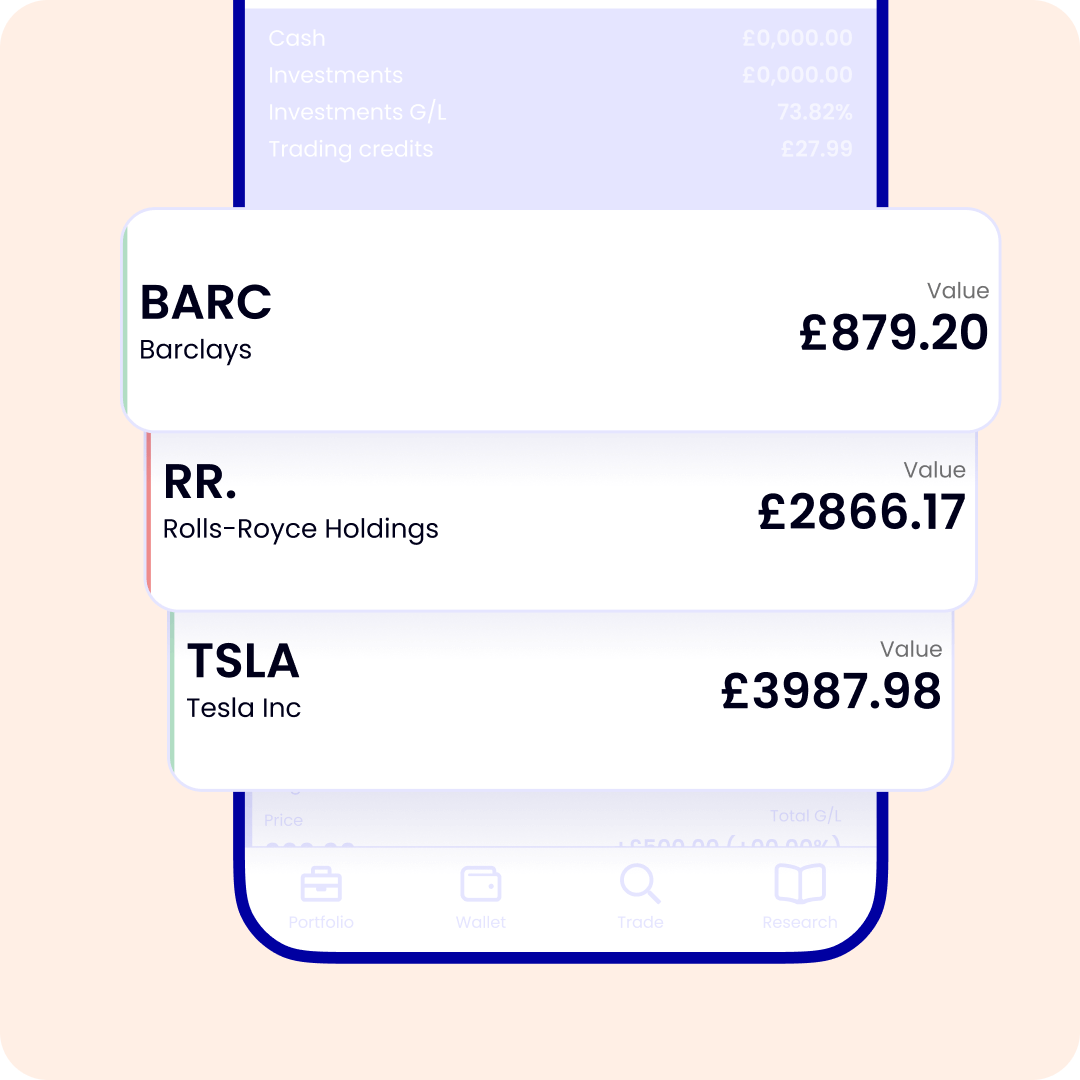Important information: As investment values can go down as well as up, you may not get back all of the money you invest. If you're unsure about investing, please speak to an authorised financial adviser.
An investment trust is a special type of fund. Like all funds, trusts let you invest in a 'basket' of underlying assets such as shares, bonds or property.
Unlike other types of funds, such as unit trusts or open-ended investment companies (OEICs), investment trusts are set up as listed companies. That means they trade on the London Stock Exchange and have a share price that can fluctuate throughout the day.
While its share price determines what you pay for an investment trust, it’s important to check the value of the trust’s assets: the net asset value (NAV). The share price may rise above or below the NAV. When above the NAV, the investment trust is said to be trading at a premium. When the price is below the NAV, it’s trading at a discount.
Source: interactive investor. Note: the top 10 is based on the number of purchases in real time between 1 October to 31 December 2025. Our most popular investments should not be taken as personal recommendations or advice on whether to buy or sell a particular investment.

Investment trusts have various bells and whistles that make them attractive to investors. A key benefit is that trusts are able to hold ‘rainy day’ dividend reserves and pay them out steadily, even when the underlying companies aren’t paying them. This stability can offer an advantage over other fund types.
Investors can also pick up a potential bargain when a trust is trading at a discount. What's more, rising markets can supercharge the performance of a trust, as managers can borrow money to invest more - known as 'gearing'.
The special features of investment trusts can make them appealing opportunities for high returns. But these benefits can also make trusts more volatile than other types of fund. So always know the risks of investing and make sure you’re in it for the long term.
Our experts have selected a number of investment trusts for our Super 60 investments and ACE 40 sustainable list. You'll also find other helpful shortlists of funds and trusts to explore.

Our market-leading team of experts regularly gather and review the investment trends of over 500,000 ii investors.
Discover the team’s latest insights to help build your knowledge as well as your portfolio.
Many investment trusts have impressive track records in growing their dividends year in, year out. But there are certain types of investment trust which excel in this area.
Namely, UK equity income trusts and global equity income trusts invest in dividend-paying companies to produce an income for investors. Other income options worth considering include commercial property trusts and infrastructure trusts.
If investment income is important to you, take a look at the most recent Dividend Heroes list, published annually by the Association of Investment Companies (AIC).
| Company | Sector | Consecutive years dividend increased |
|---|---|---|
| City of London Ord (LSE:CTY) | UK equity income | 59 |
| Bankers Ord (LSE:BNKR) | Global | 58 |
| Alliance Witan Ord (LSE:ALW) | Global | 58 |
| Caledonia Investments Ord (LSE:CLDN) | Global | 58 |
| The Global Smaller Companies Trust Ord (LSE:GSCT) | Global | 55 |
| F&C Investment Trust Ord (LSE:FCIT) | Global | 54 |
| Brunner Ord (LSE:BUT) | Global | 53 |
| JPMorgan Claverhouse Ord (LSE:JCH) | UK equity income | 52 |
| Murray Income Trust Ord (LSE:MUT) | UK equity income | 52 |
| Scottish American Ord (LSE:SAIN) | Global equity income | 51 |
Source: The AIC Dividend Heroes list. Data as at 17 December 2025.
Important information: These figures should not be taken as personal recommendations to buy or sell a particular investment, and are not intended as advice. Past performance is not a reliable indicator of future results.

Enjoy access to over 300 investment trusts, from many of the best-known managers and even save on trading fees with our free regular investing service.
Our investment experts pour over the markets daily, so you don’t have to. Invest smarter with better insights, ideas and most-traded lists of funds, trusts and shares.
Never miss an investment opportunity with our easy-to-use mobile app. Track the markets from your pocket and adjust your portfolio at the touch of a button.
Join over 500,000 investors, over 50% of whom have been with us for more than 10 years. See why Investors' Chronicle named us a 5-star platform and their Editor's Choice.







To start buying investment trusts with ii, you’ll first need to open an account. Choose from our Stocks & Shares ISA, Self-Invested Personal Pension (SIPP) or Trading Account.
You can open your account in less that 10 minutes, either here on the website or through our mobile app.
You’ll need to add cash to your account to buy your trusts. You can do this by making a one-off payment or setting up a monthly direct debit.
Research the investment trusts you’re interested in and select those you want to invest in. If you need help choosing, remember to explore our expert insights and ideas.
When you know the trusts you want, it’s time to buy.
With the cash ready in your account, you can place an order to buy your investment trust. If you want to invest in the same trusts every month, you can always do this with our free regular investing service.
Investment trusts issue a fixed number of shares for investors to buy. This approach raises a fixed amount of money for the manager to invest in a portfolio of assets.
Just like listed companies, you can buy and sell shares in investment trusts on the stock market. The share price goes up and down according to investor demand and supply. But unlike OEICs, the trust manager's investment plans are not affected by these fluctuations.
There are various types of investment trust, but the majority invest in shares.
Some investment trusts invest for a set objective, such as capital growth, income, or a mix of both. Other trusts invest in certain sectors or regions. The main regions offering investment trusts are UK, US, Europe, Asia Pacific and emerging markets. A number of trusts simply adopt a global approach, in which the fund manager invests wherever they see fit.
Another type of investment trust, which has been gaining in prominence, is those that focus on alternative assets. Some popular sectors include renewable energy, infrastructure, commercial property and private equity.
There are other investment trusts available, such as:
Investment trust managers can borrow money to invest more in the trust. This tactic is called gearing. Gearing in a rising market magnifies gains for each shareholder. But if the market falls, investors in a geared trust will suffer greater losses per share. Gearing can improve performance, but it also means investment trusts tend to be higher risk than some other types of funds.
Here’s an example of gearing:
Let’s say you have £1,000 invested, and the manager gears by 10%; this equates to £1,100 working for you in the investment trust. If the share price doubles, the value working for you rises to £2,200. The manager must pay back the £100 they borrowed plus, let's say, 1% interest. But that still leaves you with £2,099. If the manager had not geared, you'd only have £2,000.
Imagine now that the same investment halves in value to £550; the manager still has to pay back that £101. This magnifies the losses, leaving you with only £449 instead of the £500 you'd have without gearing.
Advantages of investment trusts:
Disadvantages of investment trusts:
Diversified global investment trusts with a broad range of underlying investments can form an ideal portfolio core and are perfect for regular monthly investments. Many global and UK trusts are also ideal for income-seekers because of their ability to smooth dividend payouts over the years.
Also, investment trusts that adopt a ‘multi-manager’ approach should be considered. This means the portfolio is parcelled up, with different segments of the portfolio outsourced to carefully selected external fund managers. One respected trust that invests in this way is F&C Investment Trust, which is one of our Super 60 fund choices.
Many investment trusts are set up to pay dividends to their investors. Other investment trusts focus on capital growth only, so don’t pay dividends.
In fact, income-paying investment trusts can be particularly attractive to investors. Up to 15% of the income generated by the trust’s underlying assets can be held back each year. This means the trust can build up a ‘rainy day’ fund to bolster dividend payouts in leaner years. During the financial crisis, most UK equity income investment trusts could either maintain or increase their dividends as they dipped into their reserves.
Some income-paying investment trusts are labelled ‘enhanced income’ and generally offer higher dividend yields than other income trusts. To achieve a higher dividend yield, enhanced income trusts finance their dividends from capital as well as income.
Investment trusts have two important values:
Understanding the significance of these values can help you decide whether to buy shares in an investment trust.
When the share price is lower than the NAV, the investment trust is said to be trading at a ‘discount’. In other words, investors are paying less for the trust than its assets are actually worth. When the share price rises above the NAV, the trust is trading at a 'premium'. This status means that investors who buy into the trust are paying more than the underlying assets are worth.
Since the share price depends on supply and demand, investment trusts can trade at a premium or discount to NAV. Investors can benefit from buying at a discount, providing the discount gets smaller. It can, of course, work against investors if the discount goes the other way and increases, which will magnify losses.